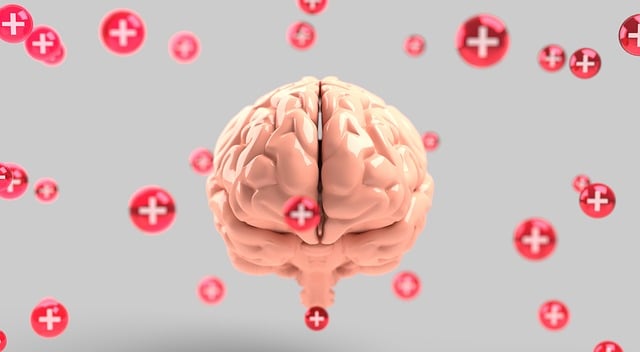Positive thinking exercises, gentle therapeutic tools designed for children and couples, aim to foster optimism, emotional regulation, and mental resilience through replacing negative thoughts with positives ones. Integrated into daily routines by parents and caregivers, these practices enhance communication, empathy, and understanding, reducing Mental Illness Stigma while promoting early mental health awareness. Effective strategies include gratitude journaling, mindfulness meditation, active listening, and appreciation circles. Real-world studies demonstrate their effectiveness in improving emotional regulation, pro-social behavior, and marital relationships. Overcoming challenges through proactive risk management planning enables consistent practice, transforming positive thinking from fleeting to integral for improved well-being and communication in therapy for children couples communication issues.
“Unleash the power of positivity with our comprehensive guide on Positive Thinking Exercises (PTEs). This gentle therapy, proven effective in enhancing mental well-being, is particularly beneficial for children. We explore its role in addressing couples’ communication issues, offering practical strategies for daily implementation. Through real-life case studies, we demonstrate PTE success stories, and provide insights to overcome challenges. Discover how this accessible practice can transform lives, fostering a more positive and sustainable mindset.”
- Understanding Positive Thinking Exercises: A Gentle Therapy for Children
- The Role of Communication in Resolving Couples' Issues Through Positivity
- Practical Implementation Strategies for Daily Use
- Case Studies: Real-life Examples of Positive Thinking Exercise Success
- Overcoming Challenges and Building a Sustainable Practice
Understanding Positive Thinking Exercises: A Gentle Therapy for Children

Positive thinking exercises are gentle therapeutic tools designed to help children develop a more optimistic mindset and improve their overall well-being. These exercises focus on training young minds to identify and replace negative thoughts with positive ones, fostering emotional regulation and enhancing mental resilience. By engaging in activities that encourage gratitude, self-compassion, and optimism, children can build better coping mechanisms and healthier ways of processing emotions.
For parents and caregivers, integrating these exercises into daily routines can be a powerful way to support children’s emotional development. Encouraging open communication and using empathy-building strategies can make these practices more engaging and effective. This approach not only aids in navigating couples’ communication issues but also contributes to Mental Illness Stigma Reduction Efforts by promoting understanding and nurturing mental health from an early age. Through consistent practice, positive thinking exercises can empower children to develop strong emotional regulation skills, ensuring they are equipped to handle life’s challenges with greater ease.
The Role of Communication in Resolving Couples' Issues Through Positivity

Effective communication is a cornerstone when it comes to resolving couples’ issues through positivity. In many cases, misunderstandings and conflicts arise due to a breakdown in open dialogue. When partners can actively listen, express their feelings honestly yet respectfully, and engage in constructive conversations, they lay the foundation for positive thinking and self-esteem improvement. This process not only strengthens their bond but also fosters the development of coping skills necessary for navigating life’s challenges together.
In therapy for children couples, promoting healthy communication is crucial. By modeling these techniques, parents can teach their children valuable skills that will serve them well in all aspects of life. Encouraging a culture of open dialogue where every perspective is valued helps create an environment conducive to positive thinking and emotional growth. This, in turn, strengthens the family unit and enhances overall well-being.
Practical Implementation Strategies for Daily Use

Incorporating positive thinking exercises into your daily routine can be a powerful tool for personal growth and well-being. For children, starting early with simple practices like gratitude journaling or mindful breathing can foster a resilient mindset. Encourage them to reflect on positive experiences, no matter how small, and express these through drawing, writing, or even playing games that promote optimism. Couples can benefit from shared activities designed to enhance communication strategies, such as active listening exercises or ‘appreciation circles’ where each partner takes turns expressing what they admire about the other.
The implementation of positive thinking doesn’t stop at personal reflection. It’s also about incorporating stress reduction methods and emotional healing processes into everyday life. For instance, mindful walks in nature, coupled with deep breathing techniques, can offer a respite from daily pressures. Additionally, engaging in communication strategies that promote open dialogue and understanding can alleviate relationship tensions, creating a more harmonious environment. These practical approaches, when consistently applied, have the potential to significantly improve mental health and overall satisfaction in both personal and professional spheres, addressing therapy for children and couples’ communication issues effectively.
Case Studies: Real-life Examples of Positive Thinking Exercise Success

In the realm of therapy, particularly for children and couples grappling with communication issues, positive thinking exercises have proven to be a game-changer. Real-life case studies illustrate the profound impact of integrating practices like mindfulness meditation and compassion cultivation into therapeutic routines. For instance, a study focusing on at-risk youth showed significant improvements in emotional regulation and pro-social behavior after regularly engaging in empathy-building strategies.
Another compelling example involves a married couple seeking therapy for their relationship. By incorporating compassion cultivation practices, they learned to communicate more effectively, fostering an environment of understanding and support. These exercises not only enhanced their individual well-being but also strengthened the emotional bond between them. Such success stories underscore the effectiveness of positive thinking exercises in addressing diverse challenges, from childhood difficulties to adult relationships, through evidence-based methods like Mindfulness Meditation and Empathy Building Strategies.
Overcoming Challenges and Building a Sustainable Practice

Overcoming challenges is a vital step in implementing positive thinking exercises, especially when tailored for therapy sessions with children and couples facing communication issues. It requires mental wellness professionals to be proactive in addressing potential hurdles that might disrupt the practice’s sustainability. One effective strategy is incorporating mindfulness meditation techniques into therapy plans. This not only enhances clients’ ability to stay present during exercises but also equips them with valuable risk management skills, enabling them to navigate challenging thoughts or emotions constructively.
By integrating mindfulness and fostering open communication, therapists create a supportive environment that encourages consistent practice. Regular sessions focused on mental wellness allow individuals to develop a sustainable routine, transforming positive thinking from a fleeting concept into an integral part of their daily lives. This holistic approach, supported by effective risk management planning, ensures that both children and couples receive the benefits of improved communication and emotional well-being over time.
Positive thinking exercises have proven to be a powerful therapy for children, fostering resilience and emotional well-being. By incorporating these strategies into daily routines, couples can enhance communication and resolve issues from a place of positivity. Overcoming challenges with consistent practice and real-life case studies demonstrating success, this gentle approach offers a sustainable path towards healthier relationships and improved mental health. Through open dialogue and a positive mindset, individuals can navigate life’s obstacles, fostering both personal growth and stronger connections.










